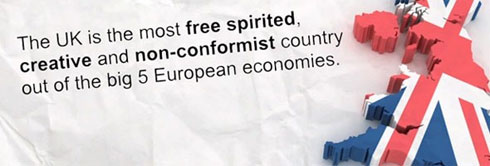I was sent a press release from Confused.com and as they have such a high profile, I thought I would publish their findings in regards to the work place.
Interestingly the study from Confused Nation suggested that 80% of the UK are confused as to what employers are looking for, which makes me wonder if we as recruiters are again failing in doing a thorough job when it comes to understanding the needs of the recruiter. Or is it because we get passed the details third hand from the HR department?
SIX STEPS TO END WORKPLACE WORRIES
Step 1 – Sharing
If you are unhappy in your job, don’t bottle it up. Your first move should be to talk to your friends or partner. By telling them about your concerns a huge amount of anxiety will be lifted, enabling you to focus on being proactive.
Step 2 – Consulting
Nearly a quarter of the UK workforce (24%) feel overqualified for their job. Your second stage of action should be consulting with close colleagues and friends. If you are looking for a promotion or to change department within your company, have a chat with you line manager or senior member of staff for advice. The feedback they provide could seriously help your decision and provide you with a plan of action.
Step 3 – Prioritising
Men struggle with prioritising their life, a huge 70% find the work/life ratio hard to manage. So if you’re still confused about what you want from your next job, write down five things that you enjoy about your job or are good at. Then below write down five things that you don’t enjoy or struggle with. Use this list as a set of guidelines when looking for your next job. By prioritising what you want from your new role or career, you will help make decisions on what jobs to apply for and save yourself time.
Step 4 – Investigating
If you’re thinking about a career change but are confused about what to do, the simple advice is to spend some time investigating. By researching different careers on the internet or library you will have a greater understanding of new industries and reduce confusion. Asking questions is the key; you may have a neighbour or friend who works in the industry or they may know someone to put you in contact with to find out more.
Step 5 – Anticipating
Planning for an interview is always key. A huge 75% of men are confused by CV writing and 68% struggle with job applications. Take some time to get your head around the process as a friend or partner to proof read your application. For CV advice speak to a friend or visit a careers websites where there are lots of great examples.
Step 6 – The Three C’s (Cool, Calm, Collected)
So you nailed the application, impressed with your CV – now comes the really nerve wracking bit: the interview. Our research has revealed that 77% of Brits are confused by job interviews and 43% are confused about what to wear for an interview. The trick is to stay cool, calm and collected. An interview is an opportunity to talk about yourself, your interests, ambitions and experience.
Psychologist, Dr Peter Collett has put together some ways in which workplace confusion can be alleviated as above.






An interesting topic… It’s true that alot of people don’t really know what employers are looking for, and make lots of mistakes at interview because they conform to stereotype ideas of what they think is impressive… I think the best option is to be yourself, and as you say stay cool and calm. If you pretend to be someone you aren’t the job won’t fit and neither you nor the employer will be happy in the long run.
I think a large part of the problem is that many people feel that asking too many questions reflects poorly on them, as a result they would rather apply for a job, go into an interview or even accept a job without a thorough understanding of what the job entails. As such the job they end up doing is rarely the job they thought they were taking.
I agree with Francesca in that alot of people will outwardly conform to stereotypes associated with the profession, this leads to the employer and the candidate not really understanding one another which is a poor basis for any relationship.
I believe it’s best to ask questions, maks sure you have a perfectly clear understanding of the job and then present yourself honestly and professionaly so that a potential employer has a clear understanding of you.